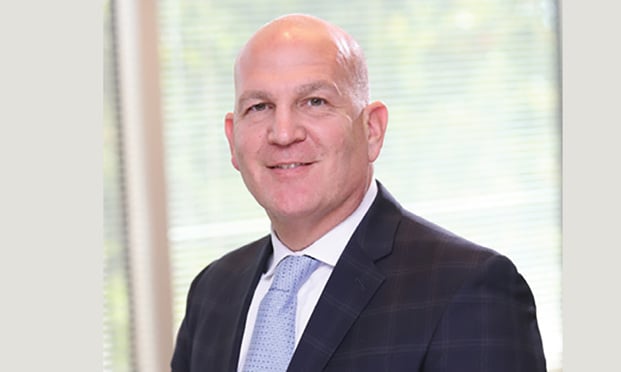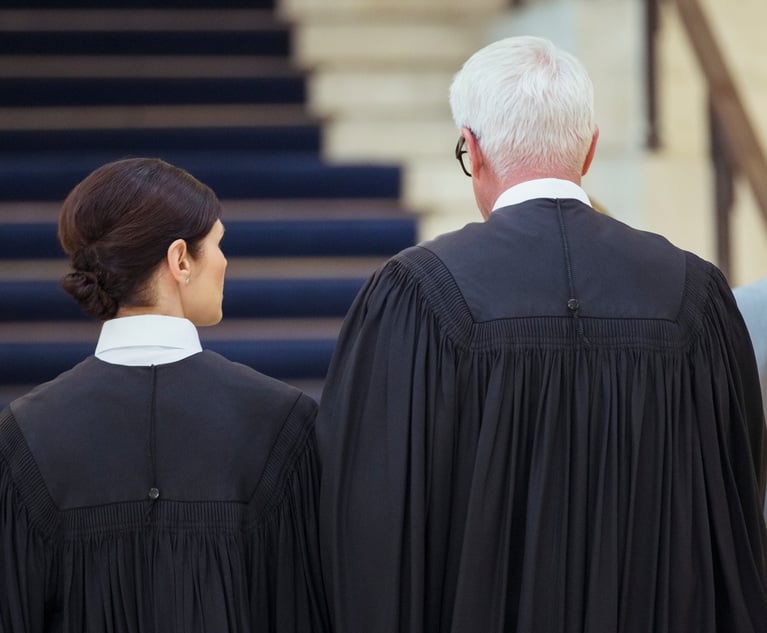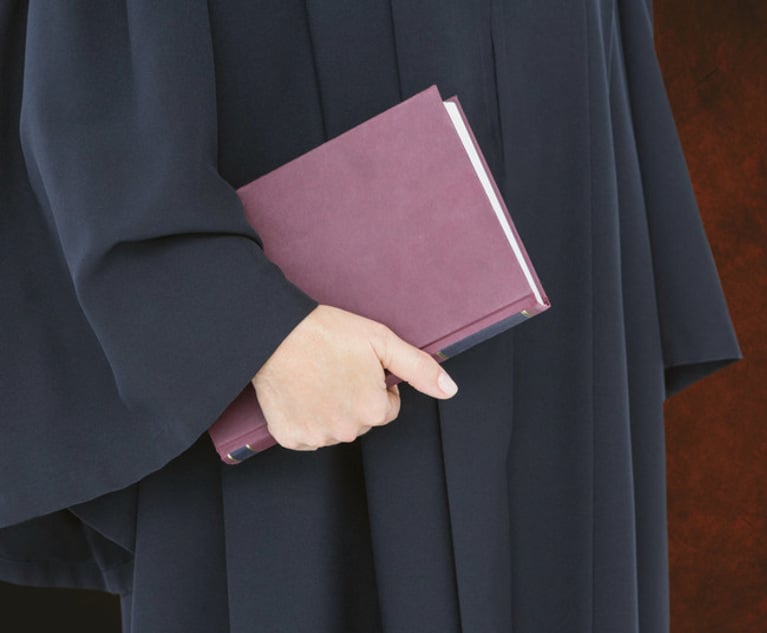If Juries Can Hear About My Client's Past, Why Can't They Hear About Officers' Personnel Files?
If judges won't apply 404(b) evenhandedly, the General Assembly should abolish it.
June 05, 2020 at 02:28 PM
3 minute read
 Noah Pines of Ross & Pines. (Courtesy photo)
Noah Pines of Ross & Pines. (Courtesy photo)
When law enforcement kills a member of our community, long before you learn the officer's name, you often learn that the victim was "no angel." Whether it's Ahmaud Arbery or George Floyd or Eric Garner, always, no angel. And even when somebody is pretty angelic, like Philando Castile or Botham Jean, there's a rush to blame them for smoking marijuana or watching movies in the dark. And that attitude is reflected in the way our criminal justice system would treat these who survive violent confrontations from police. Following that survival, there is prosecution. And as part of its case, the state is going to use rule 404(b) to tell the jury every nefarious thing the defendant has ever done. In theory, such evidence is not readily admissible, because it effectively destroys the presumption of innocence, assuring jurors that, even if the defendant didn't commit this crime, a conviction works no great injustice because he is no angel. But in reality, admission is close to automatic in most courts.
By contrast, so-called reverse 404(b) evidence is some of the most difficult, almost impossible, evidence to admit in our legal system. Let's say I represent another victim of the officer facing murder charges for the death of George Floyd, and my client is charged with felony obstruction. If our defense is that my client was not "offering violence" to the officer but instead defending himself against the officer's excessive use of force, I might want to show the video of the officer with his knee on Mr. Floyd's neck or give the jury a look through what is reported to be a very lengthy personnel file. But, if I try to introduce this evidence at trial, the prosecutor will object, the judge will sustain the objection, the jury will never hear the evidence, and, if my client is convicted, the appellate courts will affirm the trial court's ruling.
I don't think this is an isolated problem. For every death of a Mr. Floyd, there are hundreds of thousands of arrests and prosecutions for trumped-up charges against innocent people, and 404(b) evidence helps send those people to prison.
Almost every state, including Georgia, has some version of the federal 404(b) rule. And if we take a minute to read that rule, there is no reason why "reverse" 404(b) evidence couldn't be used as a powerful tool against the government at trial.
You want to stop injustice? Get rid of 404(b) and let every defendant be judged on the evidence of crime the state has charged and not on past mistakes. Better yet, keep 404(b) and start applying the rules evenly, so that juries can learn the whole story. Criminal defendants aren't perfect people, but neither are the agents of the state.
Noah H. Pines, a partner at Atlanta's Ross & Pines, heads the firm's criminal defense and appellate practice.
This content has been archived. It is available through our partners, LexisNexis® and Bloomberg Law.
To view this content, please continue to their sites.
Not a Lexis Subscriber?
Subscribe Now
Not a Bloomberg Law Subscriber?
Subscribe Now
NOT FOR REPRINT
© 2025 ALM Global, LLC, All Rights Reserved. Request academic re-use from www.copyright.com. All other uses, submit a request to [email protected]. For more information visit Asset & Logo Licensing.
You Might Like
View All
Spalding Jurors Return $12M Verdict Against State Farm Insurance Client
10 minute read

Trending Stories
- 1The FTC’s Noncompete Rule Is Likely Dead
- 2COVID-19 Vaccine Suit Against United Airlines Hangs on Right-to-Sue Letter Date
- 3People in the News—Jan. 10, 2025—Lamb McErlane, Saxton & Stump
- 4How I Made Partner: 'Be Open With Partners About Your Strengths,' Says Ha Jin Lee of Sullivan & Cromwell
- 5Essential Labor Shifts: Navigating Noncompetes, Workplace Politics and the AI Revolution
Who Got The Work
Michael G. Bongiorno, Andrew Scott Dulberg and Elizabeth E. Driscoll from Wilmer Cutler Pickering Hale and Dorr have stepped in to represent Symbotic Inc., an A.I.-enabled technology platform that focuses on increasing supply chain efficiency, and other defendants in a pending shareholder derivative lawsuit. The case, filed Oct. 2 in Massachusetts District Court by the Brown Law Firm on behalf of Stephen Austen, accuses certain officers and directors of misleading investors in regard to Symbotic's potential for margin growth by failing to disclose that the company was not equipped to timely deploy its systems or manage expenses through project delays. The case, assigned to U.S. District Judge Nathaniel M. Gorton, is 1:24-cv-12522, Austen v. Cohen et al.
Who Got The Work
Edmund Polubinski and Marie Killmond of Davis Polk & Wardwell have entered appearances for data platform software development company MongoDB and other defendants in a pending shareholder derivative lawsuit. The action, filed Oct. 7 in New York Southern District Court by the Brown Law Firm, accuses the company's directors and/or officers of falsely expressing confidence in the company’s restructuring of its sales incentive plan and downplaying the severity of decreases in its upfront commitments. The case is 1:24-cv-07594, Roy v. Ittycheria et al.
Who Got The Work
Amy O. Bruchs and Kurt F. Ellison of Michael Best & Friedrich have entered appearances for Epic Systems Corp. in a pending employment discrimination lawsuit. The suit was filed Sept. 7 in Wisconsin Western District Court by Levine Eisberner LLC and Siri & Glimstad on behalf of a project manager who claims that he was wrongfully terminated after applying for a religious exemption to the defendant's COVID-19 vaccine mandate. The case, assigned to U.S. Magistrate Judge Anita Marie Boor, is 3:24-cv-00630, Secker, Nathan v. Epic Systems Corporation.
Who Got The Work
David X. Sullivan, Thomas J. Finn and Gregory A. Hall from McCarter & English have entered appearances for Sunrun Installation Services in a pending civil rights lawsuit. The complaint was filed Sept. 4 in Connecticut District Court by attorney Robert M. Berke on behalf of former employee George Edward Steins, who was arrested and charged with employing an unregistered home improvement salesperson. The complaint alleges that had Sunrun informed the Connecticut Department of Consumer Protection that the plaintiff's employment had ended in 2017 and that he no longer held Sunrun's home improvement contractor license, he would not have been hit with charges, which were dismissed in May 2024. The case, assigned to U.S. District Judge Jeffrey A. Meyer, is 3:24-cv-01423, Steins v. Sunrun, Inc. et al.
Who Got The Work
Greenberg Traurig shareholder Joshua L. Raskin has entered an appearance for boohoo.com UK Ltd. in a pending patent infringement lawsuit. The suit, filed Sept. 3 in Texas Eastern District Court by Rozier Hardt McDonough on behalf of Alto Dynamics, asserts five patents related to an online shopping platform. The case, assigned to U.S. District Judge Rodney Gilstrap, is 2:24-cv-00719, Alto Dynamics, LLC v. boohoo.com UK Limited.
Featured Firms
Law Offices of Gary Martin Hays & Associates, P.C.
(470) 294-1674
Law Offices of Mark E. Salomone
(857) 444-6468
Smith & Hassler
(713) 739-1250







